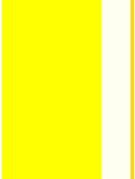KEYNOTE SPEAKERS
Steven Weinberg, Nobel Prize in Physics, 1979
The University of Texas at Austin, USA
Theo Hahn
Institut für Kristallographie, RWTH Aachen, Germany,
Past President of the International Crystallographic Union
Jay Kappraff* and Sergey V. Petoukhov**
*NJIT Department of Mathematics
** Russian Academy of Sciences
Meir Shinitzky
Weizmann Institute of Science, Israel
PLENARY LECTURERS
Chaim Goodman-Strauss
University of Arkansas, USA
Hermann Haken
Institute for Theoretical Physics I, Center of Synergetics, University of Stuttgart, Germany
Dezsõ Horváth
KFKI RMKI, Hungary and LHC CERN, Switzerland
Alajos Kálmán
Chemical Research Center, Hungary
Solomon Marcus
Romanian Academy, Romania
Gábor Náray-Szabó
Eötvös Loránd University,
Hungary
Gerald Pollack
University of Washington, USA
Josef Scolnik
Weizmann Institute of Science, Israel
Tibor Toró
Sapientia University, Romania
Tudor Zamfirescu
Dortmund University of Technology, Germany
Symmetry in the History of Science, Art, Technology and Medicine
Interdisciplinary approach has been a crucial issue in the history of sciences, arts, technology and medicine. Interdisciplinarity is already present in many schools, however its wider introduction at all levels and at a global range would be desirable. Schools must output alumni who are able to solve problems in everyday life, in science, in culture, and who are able to independently execute interdisciplinary tasks that do not fit into former schemes. Experience of the past could be a good lesson for the future.
Study and examples of general holistic approaches, concepts, phenomena can play a central role.
Symmetry is one of the most powerful means among such approaches.
Acquisition of future knowledge is based on the pool of knowledge accumulated by traditional and recent research.
Main target groups of the Symmetry Festival 2009 are:
- educators – at school and at university levels – in arts, sciences and humanities;
- researchers;
- engineers;
- practitioners and researchers in medicine and pharmaceutics;
- artists, designers (theoreticians and practitioners);
- representatives of all media that transmit/convey new knowledge.
The science- and art-related questions to be answered by the participants of the Festival:
- What role did symmetry play in the history of discoveries, scientific research, arts, engineering and medicine?
- How did symmetry principles assist acquiring new knowledge?
- How can one re-evaluate, rearrange, reinterpret, and restructure earlier scientific knowledge in the light of more recent knowledge?
- How could symmetry be demonstrated to integrate knowledge of diverse disciplines?
- What have 20th-21st century arts learned and implemented from the sciences?
- Did aesthetics play any role in former scientific discoveries? If so, what were the most important issues?
- Lessons of the recent new knowledge on the two human cerebral hemispheres: How can curricula draw both from the arts and the sciences, as far as possible, in a balanced proportion?
- What role played symmetry in integrating methods in the sciences of the inanimate and organic nature.
- Symmetry principles in the humanities.
- Symmetry as an idea and as a tool in (the history of) the sciences.
Call for papers
You are kindly invited to submit for presentation your significant new scientific results in any of the above listed or related topics. Research papers should be original contributions, not accepted or submitted elsewhere.
Instruction for Authors
Only electronic submissions can be accepted via Abstract Submission Form. Your extended abstract are limited to max 12.000 characters (four A4 pages).
The size of the page must be set to "A4".
Full Paper Submission
Authors of accepted abstracts are requested to submit their full papers for publication of the proceedings following the given guidelines and format (see downloadable style-sheet and sample page).
Deadline for submission of full papers: 15 May, 2009
Please note:
Papers without at least one author registering by the early registration deadline will be automatically excluded from the conference program.
Planned special sessions
- Symmetry in the history and philosophy of science
- Symmetry in the history of interdisciplinary approaches in the sciences
- Symmetry in the history of physics, chemistry and material science
- Symmetry in the history of mathematics
- Arts and the space research (application of symmetry considerations)
- Symmetry in life sciences, medicine and pharmacology
- Symmetry as a medium between the arts and the sciences
- Symmetry principles in architecture and design
- Origami in science and art
- Symmetries and visualisation
- Symmetry in bioinformatics
- Symmetry in Linguistics
- Education and symmetry
Your proposals are welcome for additional special sessions and round-table discussions!

